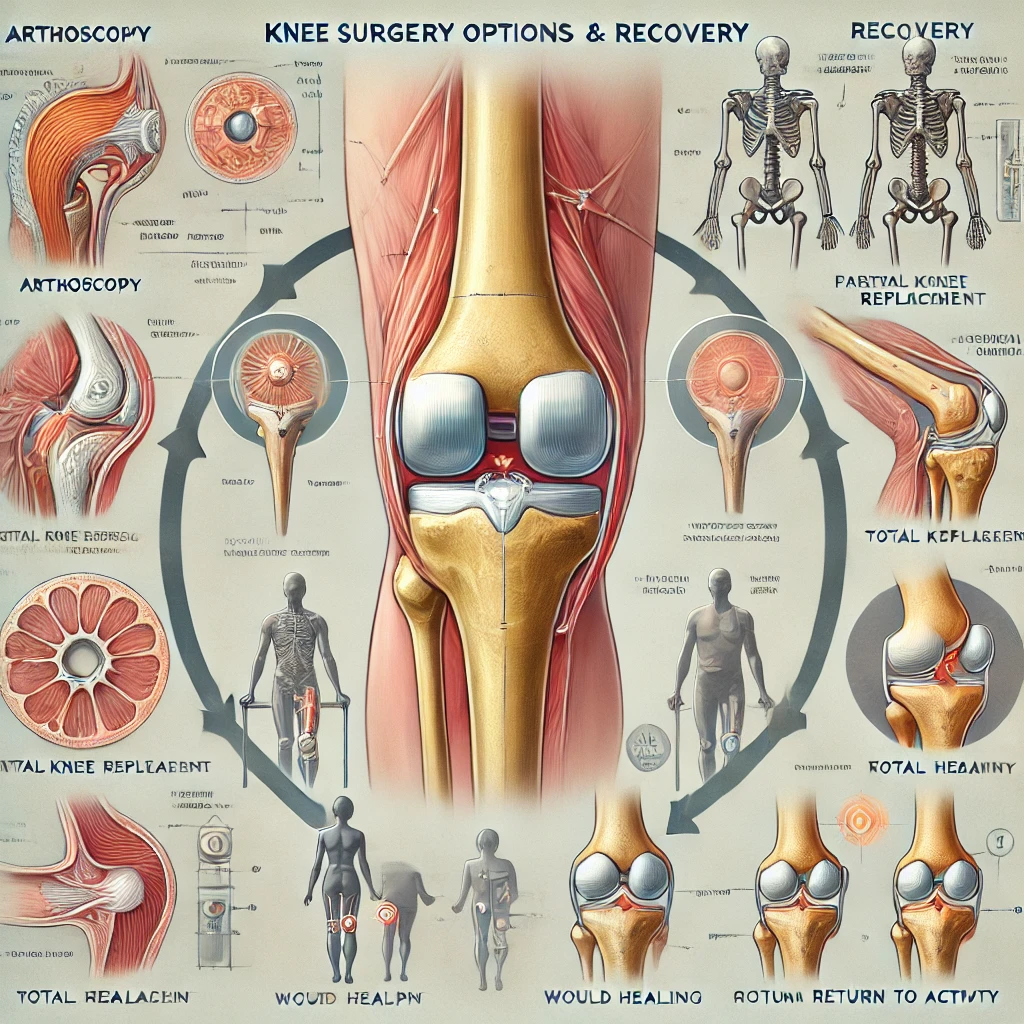Types of Knee Surgery
Arthroscopic Debridement
During arthroscopic debridement, small incisions are made around the knee to insert a tiny camera and instruments to remove loose fragments of cartilage or bone and smooth roughened articular surfaces. It provides short-term pain relief but doesn’t address underlying arthritis progression. This outpatient procedure has a relatively quick recovery.
Osteotomy
A knee osteotomy realigns the leg and redistributes knee loads to unload damaged areas. The surgeon cuts and reshapes the tibia or femur, then fixes it in place with plates and screws. This delays the need for knee replacement in younger arthritis patients. Recovery takes several months with restricted weightbearing.

Joint Replacement Recovery
Hospital Stay
After total knee replacement surgery, patients typically stay in the hospital for 1-3 days for pain control and initial recovery. Antibiotics prevent infection and blood thinner injections reduce clotting risk. Occupational therapy starts knee range of motion exercises. Post-op knee swelling is common.
Rehabilitation
Formal physical therapy generally begins 2-3 weeks after knee replacement once surgical wounds have healed adequately. The therapist helps improve flexibility, gait, and strength through graduated exercises. Progress is gradual over 3-6 months as swelling resolves and mobility improves. Home exercise continues after formal therapy ends. Full recovery takes up to a year.

Leave a Reply